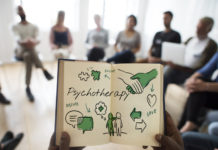Drug addiction is a serious mental disorder and has the potential to cause the development of deadly complications. The effects of drug addiction are so severe that many people do not feel capable of dealing with their addictions, and they resort to dangerous means of self-medication such as using illegal drugs or alcohol. It is important for the treatment of an addict to include both psychological and medical treatments in the course of the treatment. As drug addiction is a complex disorder, multiple forms of drug addiction treatment are required.
The psychological treatment of drug addiction starts early on and the patient should be given adequate stimulation. This stimulation can come from family, friends, professionals, and peers. Drug addiction treatment should also include a group therapy and a group meeting to deal with the emotional aspects of drug addiction. Group therapy and group meetings help the addict develop new relationships that might have been lost through drug use and dependence. Group therapy and group meetings can also help the patient deal with his or her fears about the withdrawal symptoms of his or her drug addiction.
When it comes to dealing with different types of drug addiction, there are many different types of medication that can be used. Inpatient treatments for addiction to drugs are very common, but they usually last for only about four weeks. On-going outpatient treatments are usually reserved for addicts who do not want to leave their homes to go into a rehabilitation facility. There are many non-inpatient programs that an addict may choose to participate in to help him or her to overcome drug addiction. These programs may range from outpatient residential programs to in-home services. The most commonly used type of rehabilitation for addiction to drugs is outpatient rehab. It involves the addict going through a prescribed program to overcome the cravings for drugs and getting rid of the habit permanently.











